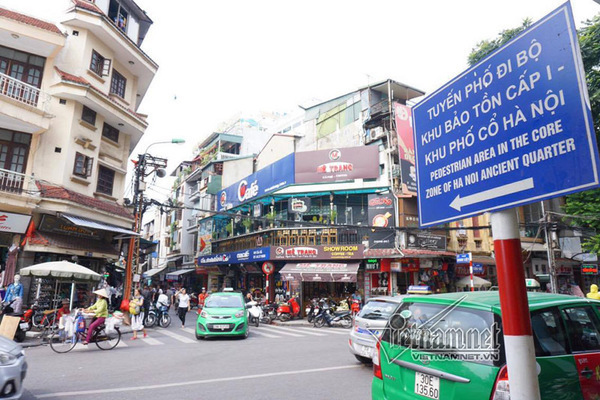 |
|
The achievements of human rights in Vietnam in the past 70 years have been reflected in all fields, especially the great strides in economic development during more than 30 years of renovation (1986-2018).
|
The more the country develops, the greater its socio-economic achievements are, the more premises that Vietnam has to exercise human rights for all Vietnamese. There are numbers that are cold and dry. But there are always soulful numbers because they can "speak" and show their weight and great value to the public and the international community.
The achievements of human rights in Vietnam in the past 70 years have been reflected in all fields, especially the great strides in economic development during more than 30 years of renovation (1986-2018).
From an outdated agricultural economy, which was worth only $14 billion in 1985, in 2018 it is estimated to reach $244 billion, an increase of more than 17.4 times. Vietnam's economy is currently ranked 44th in the world by nominal GDP and 34th based on international purchasing power parity.
With a sharp reduction in the poverty rate from over 60% (1986) to around 7% (at the end of 2017), Vietnam has shifted from the group of low-income economies to the middle-income group. Per capita income in 1985 reached $230 and currently it is nearly $2,540 (nearly $7,640 if it is calculated based on equivalent purchasing power).
The spectacular economic growth is not only a basis for the country to ensure food and clothing for the people, but also a prerequisite for the State to well implement social welfare and cultural policies.
This is reflected in the "human development index" (HDI). The HDI report released by the United Nations Development Program (UNDP) in mid-October 2018 said that Vietnam's HDI increased continuously for the past 27 years. In 2017, with an HDI of 0.684, it ranked 116/189 countries. Vietnam was rated by UNDP as a country with a highly average HDI.
Vietnam is also one of the countries that strive to ensure the freedom of information and speech for the people. Currently, all the departments, ministries, branches and unions from the central to local levels, classes, professional associations, sexes, and all components in the commune have their own newspapers, magazines, or websites. If every Vietnamese citizen participates in an organization, that organization has its own to guarantee the right to access to information of its members.
The Internet appeared in Vietnam at the end of 1997 and after 20 years, thanks to the open development policy, more than 60% of the population are now internet users. Vietnam ranks 16th in the world for the number of Internet users.
From a country that was isolated in many aspects, Vietnam has implemented open-door policy and extensive international integration. The country has established diplomatic relations with nearly 190 countries, including comprehensive strategic partnerships with 3 countries, strategic partnerships with 13 countries and comprehensive partnership with 11 countries. Of these 27 countries, 5 are permanent members of the United Nations Security Council (Russia, China, the United Kingdom, France, the US) and many other powers such as Germany, India, Japan, Brazil, etc. Vietnam also has trade relations with over 200 countries.
Vietnam's position, image and voice have been increasingly strengthened in the international arena. Therefore, Vietnam has been elected to important UN agencies such as the non-permanent member of the UN Security Council for the 2008-2009 term, the UN Human Rights Council for the 2014-2016 term, and the Social-Economic Council for the 2016-2018 term, the UNESCO Executive Council for the 2015-2019 period. In May 2018, Vietnam was nominated by 53 Asia-Pacific countries as the only candidate in the region as a non-permanent member of the United Nations Security Council for the term 2020-2021.
From a poor, backward, unnamed country on the world map, after more than seventy years of mobilizing the people to unite for the cause of struggling, building and defending the country, Vietnam has become a nation of peace and independence, which is recognized by the international community as one of the pioneering countries and a bright spot in achieving the millennium goals on hunger eradication and poverty alleviation, welfare, justice and social progress.
As a developing country, besides the opportunities and advantages, Vietnam also faces many difficulties and challenges. But with the nature of a preeminent social system that the whole nation has voluntarily chosen and persisted to pursue, Vietnam is determined to achieve its goals in human rights.
The Communist Party of Vietnam has set a goal of building the country according to the socialist orientation of "Rich people, strong country, democracy, justice, civilization" with the implication that Vietnam is always persistent and strives to ensure " the right to happiness "(rich people) and" freedom right"(democracy) that President Ho Chi Minh once stated in the Declaration of Independence. When the nation is rich in material, cultural, spiritual aspects and guarantees freedom and democracy in all aspects, it demonstrates Vietnam's political commitment to other countries and international communities in effective implementation of universal values of human rights defined in the "Universal Declaration of Human Rights".
Hai Van
 Vietnam has increasingly been able to create practical and cultural premises to better ensure basic human rights.
Vietnam has increasingly been able to create practical and cultural premises to better ensure basic human rights.